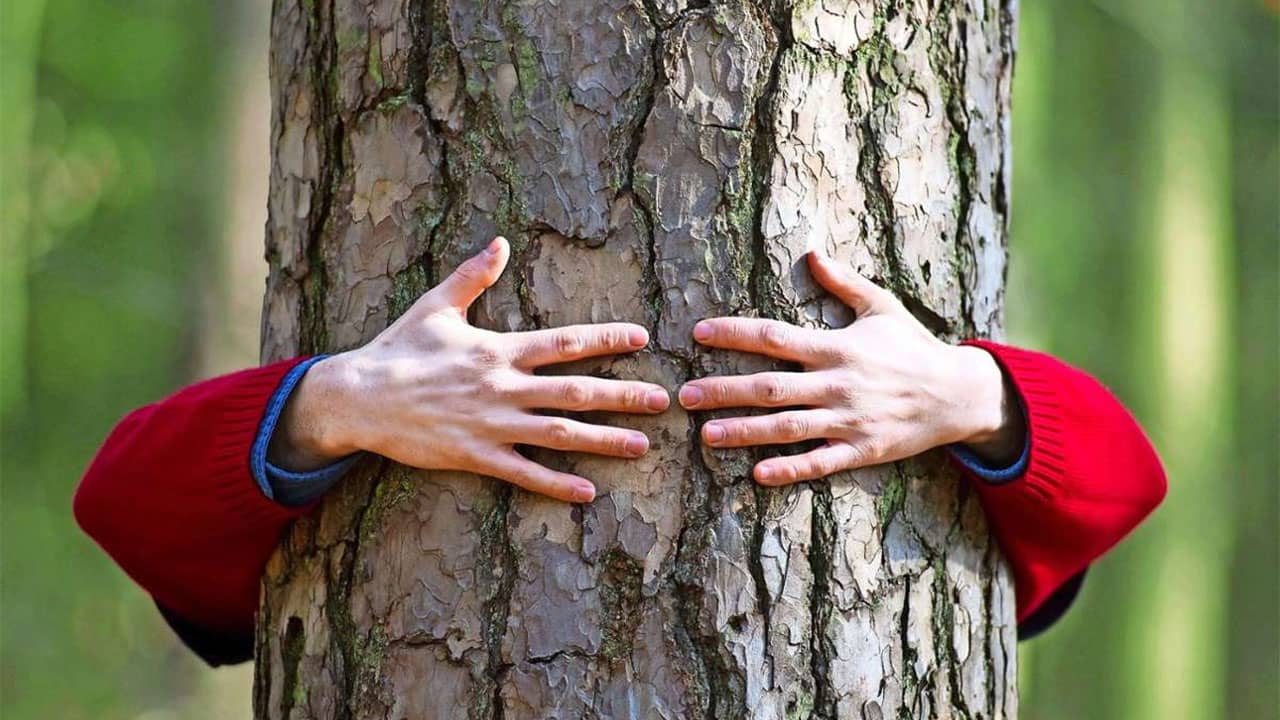by Vera Oostinga
Development of resonance ability of teachers in and with nature
Resonance ability is characterized here by a mindful perceptive behavior regarding one’s own experience of nature and self-perception. Subjective feelings of resonance in the experiential space of nature contribute to the promotion of a personal relationship with nature. Through this, authenticity can develop in the teacher, which is elementary for accompanying pupils in the learning space of nature. To convey closeness to nature requires one to feel and integrate it.
The central question is how teachers manage to arouse an interest in their pupils for nature encounters and further curiosity in nature’s learning and experience space of nature. The basis for this is considered to be one’s own inner ‘fire.’ Children learn particularly well by imitating adults. For this, the training or rediscovery of our original living sense of connection with nature is in the foreground.
Considering the HOW of a sustainable nature imparts the view to bodily approaches of the perception of oneself in and with nature. Böhme’s (2005) philosophical approach to the bodily experience of nature denotes an experience in which nature announces itself emotionally to one. Seel (1996) sees the bodily way of perceiving oneself in and with nature as an existential experience of nature. This specific way of being presupposes one’s receptivity to a corresponding perception of nature based on
resonance.
The ability to feel the resonance in and with nature is closely related to a physical-bodily perception of natural phenomena. That means that besides the purely sensual feeling (touching, smelling, seeing, tasting, hearing) also, noticing of the corresponding effects in the form of own feelings and their meanings plays an important role. Impressions of nature serve “the soul as a mirror or better: as a resonance surface“ [translated by the author] (Rosa 2016, 265). The bodily-phenomenological approach (Schmitz 2009) conceives the body as the immediate subjective-grasping experience. The body one has contrasts here with the body one is.
Due to the emotional involvement in and with nature and personal insights, thereby, in most cases, an intensive relationship to nature and thus to the experience and learning space of nature in general develops. This deep personal feeling of connection is very beneficial for the teaching-learning arrangement since the authentically (pre)lived connection of the teacher in the everyday nature encounter/activity has a positive effect on the learner’s access to nature. Such a teaching-learning atmosphere is characterized by a relationship orientation, which also has a beneficial effect on social interactions and is thus the basis of every successful teaching-learning process.

The inner condition of being bodily requires specific exercises to promote ‘being bodily’. Such mindfulness practice is essential in modern, technological environments if people want/need to perceive themselves and deal with themselves emotionally as well as rationally. Especially sensitizing perception exercises in and with nature as well as conversations, as a reflection surface of the subjective feeling, to specific personality topics support the quality of the own contact with nature in a unique way. Experiencing nature or resonance, which is attuned by previous practice, leads to an increased subjective receptivity for nature from the outside and the inside, or to the ability to resonate in general.
In summary, it can be stated that the personal capacity for resonance to be promoted in and with nature is seen by teachers as a prerequisite for achieving a motivating, positive effect on young people’s access to nature in the learning and experience space of nature through a relationship-oriented nature-teacher-pupil relationship. The bodily the approach of mindful experience of nature and simultaneous conscious self-awareness plays a central role in the training of teachers in this regard.
The described educational contents are specifically located in the present Erasmus+ project, as here foundations are to be created for the teaching of nature intelligence (NQ) to children of primary school age by appropriately trained accompanying teachers. Developed nature intelligence or nature connection in teachers, their enhanced well-being in nature and with themselves, and a more pronounced sense of personal responsibility for natural spaces are goals of both teacher training and pupil education in the “Nature Intelligence in School Children” project.
The results of my recently completed dissertation entitled “Subjective Interpretations of Nature Experiences in the Context of Educational Theoretical Perspectives. Experiencing nature and self-education as health-promoting factors.” provide valuable qualitative empirical evidence and theoretical content suggestions for planning and implementing principles and guidelines for NQ school programs and, most importantly, a corresponding curriculum for teacher education.




